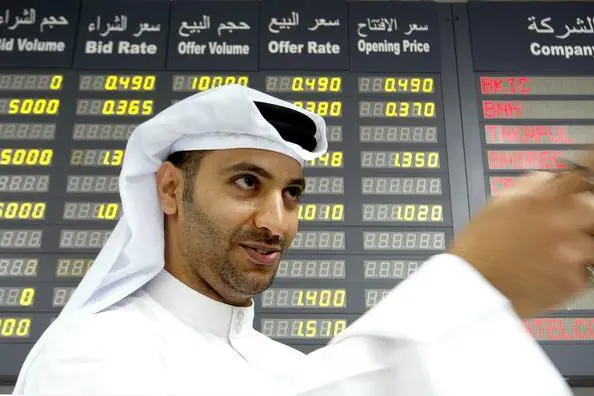PHOTO
By Bernardo Vizcaino
Nov 26 (Reuters) - The Bahrain-based International Islamic Financial Market (IIFM) launched a standard contract template for sharia compliant cross currency swaps on Thursday, as the industry body seeks to enhance use of hedging tools in the sector.
As Islamic finance grows, institutions are increasingly taking larger positions, often in various currencies, prompting the need for widely-accepted mechanisms to manage such risks.
It is the seventh standard issued by the IIFM, a non-profit industry body which develops specifications for Islamic finance contracts.
Applications of the standard are mainly for interbank treasury placements, but it can also be used alongside Islamic bonds (sukuk) as well as trade and corporate finance deals, chief executive Ijlal Ahmed Alvi told Reuters.
Islamic cross currency swaps have been used for years, but industry scholars have sought greater clarity on them to ensure they are not used for outright speculation, a key principle in Islamic finance.
There have been several approaches to such sharia compliant hedging tools, with the IIFM standard covering a combination of two types of Islamic contracts in a sign that the industry is favouring harmonisation of complex transactions.
The standard involves two murabaha contracts, linked with unilateral promises, known as wa'ad, which are committed separately by each counterparty.
Each party simultaneously agrees to grant each other an undertaking to purchase assets at specified future dates on the basis of murabaha transactions, common cost-plus-profit arrangements in Islamic finance.
This enables a party to raise funds in one currency for a certain period of time against a contract in another currency.
The standard, developed together with the International Swaps and Derivatives Association (ISDA), also provides guidance to ensure transactions are used for legitimate hedging purposes and not for taking speculative positions.
The IIFM has previously launched standard templates for Islamic profit rate swaps and the Islamic equivalents to repurchase agreements.
It is now working on standards for foreign exchange forwards and various sukuk structures.
The body started operations in 2002, founded by the Islamic Development Bank
ISDBA.UL
and the central banks and monetary authorities of Bahrain, Brunei, Indonesia, Malaysia and Sudan.
The central bank of Kazakhstan became its latest member at the end of last year.
(Editing by Kim Coghill) ((Bernardo.Vizcaino@thomsonreuters.com; Telf: +61293218168; Reuters Messaging: bernardo.vizcaino.thomsonreuters.com@reuters.net))
Nov 26 (Reuters) - The Bahrain-based International Islamic Financial Market (IIFM) launched a standard contract template for sharia compliant cross currency swaps on Thursday, as the industry body seeks to enhance use of hedging tools in the sector.
As Islamic finance grows, institutions are increasingly taking larger positions, often in various currencies, prompting the need for widely-accepted mechanisms to manage such risks.
It is the seventh standard issued by the IIFM, a non-profit industry body which develops specifications for Islamic finance contracts.
Applications of the standard are mainly for interbank treasury placements, but it can also be used alongside Islamic bonds (sukuk) as well as trade and corporate finance deals, chief executive Ijlal Ahmed Alvi told Reuters.
Islamic cross currency swaps have been used for years, but industry scholars have sought greater clarity on them to ensure they are not used for outright speculation, a key principle in Islamic finance.
There have been several approaches to such sharia compliant hedging tools, with the IIFM standard covering a combination of two types of Islamic contracts in a sign that the industry is favouring harmonisation of complex transactions.
The standard involves two murabaha contracts, linked with unilateral promises, known as wa'ad, which are committed separately by each counterparty.
Each party simultaneously agrees to grant each other an undertaking to purchase assets at specified future dates on the basis of murabaha transactions, common cost-plus-profit arrangements in Islamic finance.
This enables a party to raise funds in one currency for a certain period of time against a contract in another currency.
The standard, developed together with the International Swaps and Derivatives Association (ISDA), also provides guidance to ensure transactions are used for legitimate hedging purposes and not for taking speculative positions.
The IIFM has previously launched standard templates for Islamic profit rate swaps and the Islamic equivalents to repurchase agreements.
It is now working on standards for foreign exchange forwards and various sukuk structures.
The body started operations in 2002, founded by the Islamic Development Bank
The central bank of Kazakhstan became its latest member at the end of last year.
(Editing by Kim Coghill) ((Bernardo.Vizcaino@thomsonreuters.com; Telf: +61293218168; Reuters Messaging: bernardo.vizcaino.thomsonreuters.com@reuters.net))





















